Blogs
Investors getting concerned after EOS Mainnet Launch: Is it worth $4 billion?

Decentralized platforms are difficult to manage. This has been a long-standing hurdle to the development of Blockchains across the board. Bitcoin’s Blockchain, for instance, has already shown its fair share of bickering and rivalry among developers and miners when it comes to making communal based decision on the network. However, recent developments with EOS’ Blockchain and its Mainnet launch have proven that there is no simple balance to governance on a decentralized network.
For EOS, it all started at the beginning of the Mainnet launch. The much anticipated Mainnet launch went live a few days ago but only after a series of hurdles. From a freezing network to vulnerabilities on the $4billion worth enterprise and even the questionable decentralized qualities of the EOS Mainnet, there has not been a shortage EOS related issued leading up to the Mainnet launch.
Let’s take a look at some of the twisted and almost dramatic developments that have led to rising concerns about the well being of EOS Blockchain project.
Questioning the integrity of the EOS Delegated Proof of Stake protocol
Having managed over $4billion in its recently completed year-long ICO, EOS is heralded as the industrial scale Blockchain project. Its creators (Block.one) consider its capacity to scale and speed up the number of transactions as its main selling point. Compared to Ethereum (its main competitor) EOS is looking to n supersede Ethereum while deploying Decentralized Autonomous Organizations (DAO) on its platform.
How is EOS able to achieve this? Well, EOS uses a unique consensus protocol called Delegated Proof of Stake (DPoS). This algorithm is the key to scalability and speed on the EOS Mainnet and relies on groups of Block Producers elected by token holders. However, it comes with a caveat. The DPoS protocol only works with 21 groups of Block Producers (equivalent to miners on the Ethereum Blockchain) and the power of votes cast is dependent on the total amount of tokens a voter holds. This, to a great extent, limits the capacity for decentralization on the EOS network.
With a quasi-decentralized Mainnet that only allows whales with most token holdings to vote, EOS has come under heavy criticism especially from the likes of Vitalik Buterin (the creator of Ethereum) who has questioned the integrity of Block.one, and whether EOS is truly a decentralized project or an organization that creates conducive plutocratic dynamics for the few network stakeholders.
Voting Complications, Backroom politics and Investment risks
During the EOS Mainnet launch, critics pointed out the arduous election that was marked by confusion with a series of problems that led up to the network freeze. Not only was the whole process full of risk (investors had to use their private keys with a third party software), but it was also full of bickering from the whales of the EOS community. According to reports, the delays experienced during voting were as a result of backroom dealings and politicking among the whales leading to the surfacing of impostors who even hacked a Block.one account with fake announcements of unsold tokens.
Furthermore, prior to the voting, a Chinese cybersecurity firm had found massive flaws in the EOS system after which Block.one announced a bug bounty program. Eventually, a cybersecurity researcher managed to find 12 vulnerabilities on the $4 billion worth enterprise.
When the 15 percent threshold for voting was finally achieved, the EOS Mainnet collapsed during the freeze to which Jack Palmer (the Dogecoin creator) tweeted:
“So the #EOS blockchain was taken offline for 5 hours just days after launch due to a bug – until a centralized company (http://block.one ) issued a patch to block producers. …and this software had $4B in funding. Making it hard to not be critical folks”
In closing
Following the freeze, the Mainnet went back to normal fairly quickly, however, a lot of crypto enthusiasts, investors and experts have taken a critical view of EOS and its viability as a Blockchain project. At the moment, a great deal of attention is on EOS and its future performance. Everyone just wants to see what a $4billion worth Blockchain based enterprise can achieve.
For the latest cryptocurrency news, join our Telegram!
Disclaimer: This article should not be taken as, and is not intended to provide, investment advice. Global Coin Report and/or its affiliates, employees, writers, and subcontractors are cryptocurrency investors and from time to time may or may not have holdings in some of the coins or tokens they cover. Please conduct your own thorough research before investing in any cryptocurrency and read our full disclaimer.
Image courtesy of Pexels
Altcoins
XNO Token of Xeno NFT Hub listed on Bithumb Korea Exchange
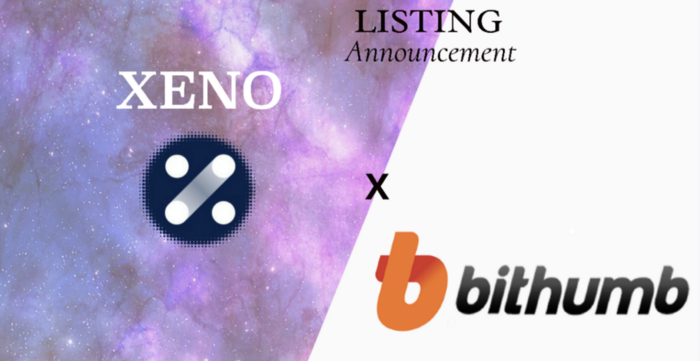
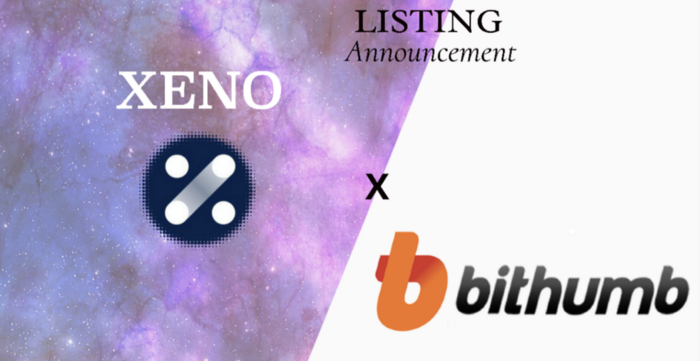
Hong Kong, Hong Kong, 25th January, 2021, // ChainWire //
Xeno Holdings Limited (xno.live ), a blockchain solutions company based in Hong Kong, has announced the listing of its ecosystem utility token XNO on the ‘Bithumb Korea’ cryptocurrency exchange on January 21st 2021.
Xeno NFT Hub (market.xno.live ), developed by Xeno Holdings, enables easy minting of digital items into NFTs while also providing a marketplace where anyone can securely trade NFTs.
The Xeno NFT Hub project team includes former members of the technology project Yosemite X based in San Francisco and professionals such as Gabby Dizon who is a games industry expert and NFT space influencer based in Southeast Asia.
NFT(Non-Fungible Token) technology has recently gained huge focus in the blockchain arena and beyond, making waves in the online gaming sector, the art world, and the digital copyrights industry in recent years. The strongest feature of NFTs is that “NFTs are unique digital assets that cannot be replaced or forged”. Unlike fungible tokens such as Bitcoin or Ether, NFTs are not interchangeable for other tokens of the same type but instead each NFT has a unique value and specific information that cannot be replaced. This fact makes NFTs the perfect solution to record and prove ownership of digital and real-world items like works of art, game items, limited-edition collectibles, and more. One of the ways to have a successful…
Altcoins
Should Crypto Projects Devote Resources to Community Growth and Marketing?

2020 has been an incredible year for crypto as investors have generated windfall profits and crypto projects have seen their businesses gain the spotlight they’ve been looking for. While Bitcoin has received most of the attention after major institutional investors announced they were accumulating the increasingly scarce asset, many altcoins have also seen their fair share of glory. When looking at all the big winners of the past year, the first project that probably comes to mind is Chainlink, having appreciated by more than 550% YTD and now valued at over $4.5 billion. But, the actual biggest winner of the year is HEX with a YTD return of over 5,000%.
I mention both of the above projects as they have each taken slightly different paths to achieve greatness. Chainlink has devoted resources toward building a fundamentally sound business with many strategic partnerships while HEX has spent vast sums of money on marketing and promotion. Both approaches are valid, but one thing is certain, it is absolutely imperative for crypto projects to let the crypto community know what makes them special. Of course, one of the reasons that makes crypto so valuable is the powerful blockchain technology that most projects are utilizing.
Cryptocurrency vs. Blockchain Technology
It’s important to make a distinction between blockchain technology and cryptocurrency. Although they are often used interchangeably, they are different. Blockchain technology and crypto were both created after the 2008 financial crisis, but cryptocurrency…
Altcoins
XENO starts VIP NFT trading service and collaborates with contemporary artist Hiro Yamagata
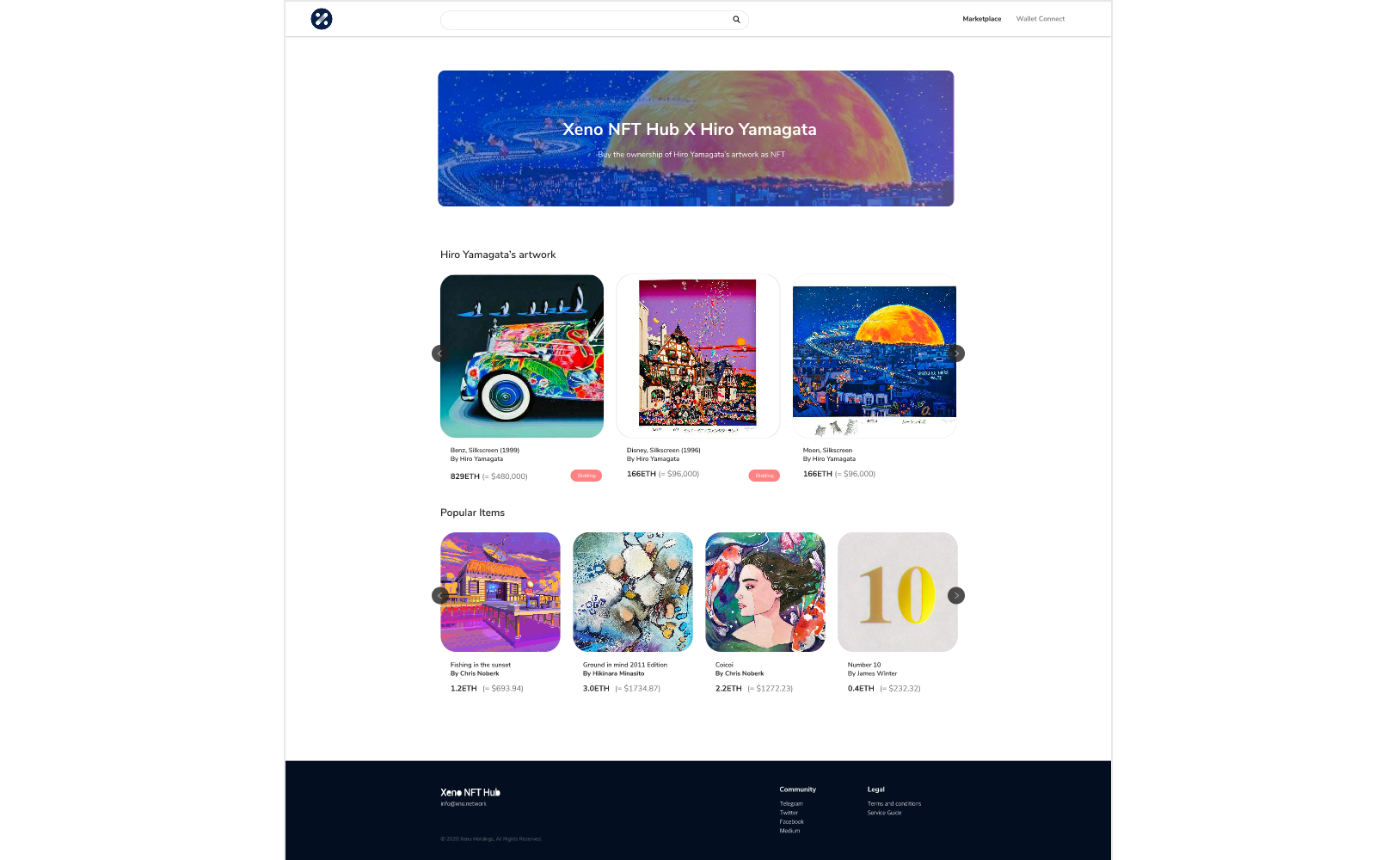
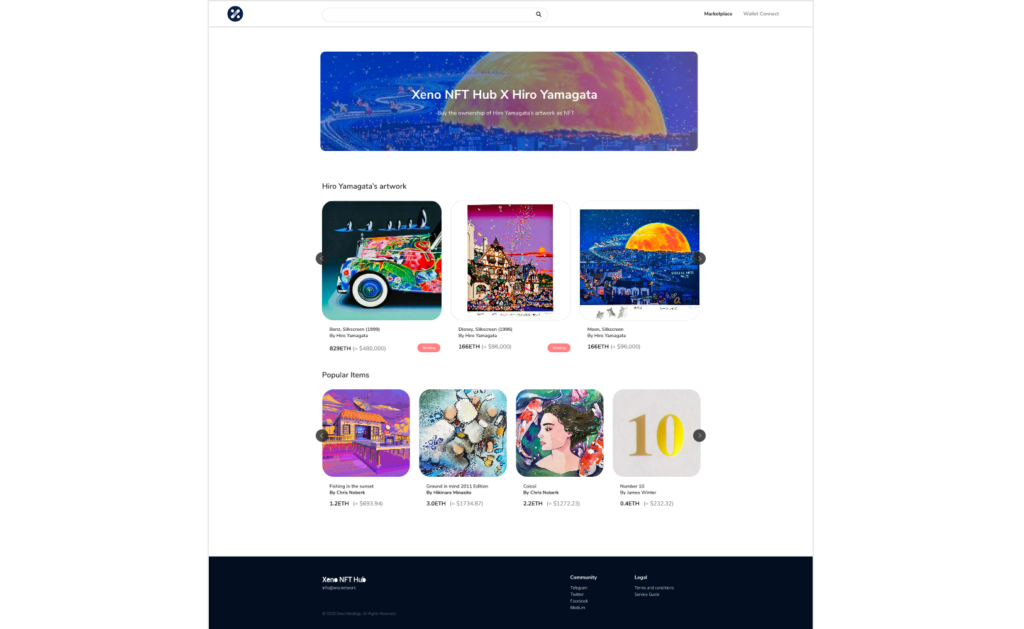
Hong Kong, Hong Kong, 24th December, 2020, // ChainWire //
The XENO NFT Hub (https://xno.live) will provide a crypto-powered digital items and collectables trading platform allowing users to create, buy, and sell NFTs. Additionally it will support auction based listings, governance and voting mechanisms, trade history tracking, user rating and other advanced features.
As a first step towards its fully comprehensive service, XENO NFT Hub launched a recent VIP service to select users and early adopters in December 2020 with plans for a full Public Beta to open in June 2021.
“NFTs are extremely flexible in their usage, from digital event tickets to artwork, and while NFTs have a very wide spectrum of uses and categories XENO will initially focus its partnership efforts and its own item curation on three primary areas: gaming, sports & entertainment, and collectibles.”, said XENO NFT Hub president Anthony Di Franco.
He also added “This does not mean we will prohibit other types of NFTs from our ecosystem However, it simply means that XENO’s efforts as a company will be targeted into these verticals initially as a cohesive business approach.”
Development and Procurement Lead, Gabby Dizon explained, “Despite our initial focus, we found ourselves with a unique opportunity to host some of the works of Mr. Hiro Yamagata. We are collaborating with Japanese artist Hiro Yamagata to enshrine some of his artwork into NFTs.”
Mr. Yamagata has…
-

 Blogs6 years ago
Blogs6 years agoBitcoin Cash (BCH) and Ripple (XRP) Headed to Expansion with Revolut
-

 Blogs6 years ago
Blogs6 years agoAnother Bank Joins Ripple! The first ever bank in Oman to be a part of RippleNet
-

 Blogs6 years ago
Blogs6 years agoStandard Chartered Plans on Extending the Use of Ripple (XRP) Network
-

 Blogs6 years ago
Blogs6 years agoElectroneum (ETN) New Mining App Set For Mass Adoption
-

 Don't Miss6 years ago
Don't Miss6 years agoRipple’s five new partnerships are mouthwatering
-

 Blogs6 years ago
Blogs6 years agoCryptocurrency is paving new avenues for content creators to explore
-
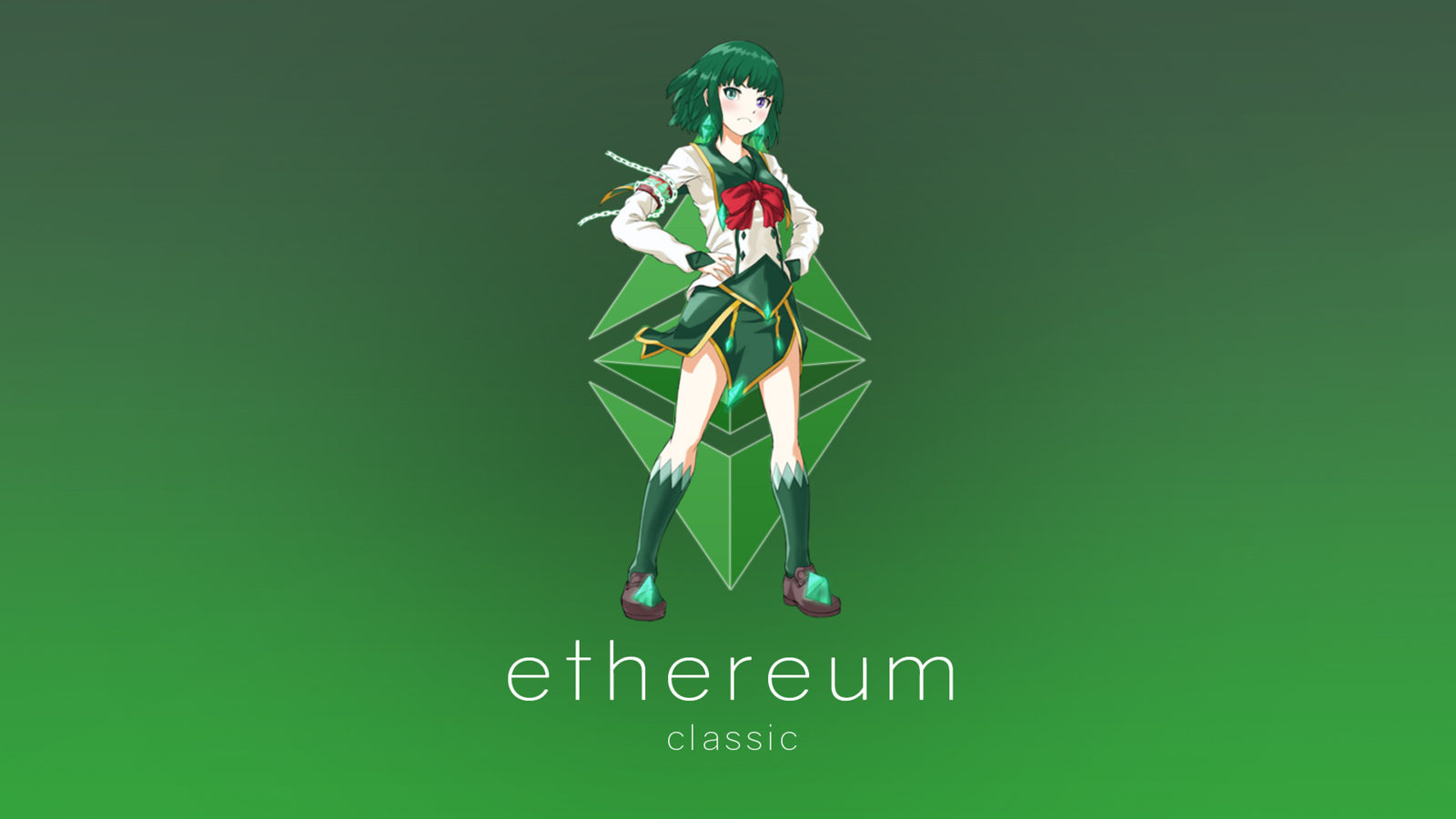
 Blogs6 years ago
Blogs6 years agoEthereum Classic (ETC) Is Aiming To Align With Ethereum (ETH)
-

 Blogs6 years ago
Blogs6 years agoLitecoin (LTC) Becomes Compatible with Blocknet while Getting Listed on Gemini Exchange















